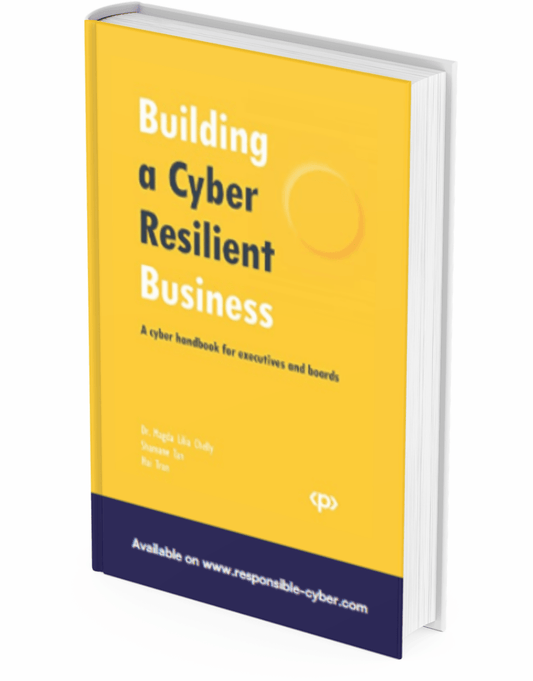Unlocking the Future: Exploring Rewarding Careers in Cybersecurity

In today's increasingly interconnected digital landscape, cybersecurity has emerged as a critical field, tasked with safeguarding our data, networks, and digital infrastructure from the ever-evolving threats of the online realm. As the world becomes more reliant on technology, the demand for skilled cybersecurity professionals has skyrocketed, making it an exciting and rewarding career path for those seeking to make a meaningful impact.
The Importance of Cybersecurity
In an age where data breaches, ransomware attacks, and cyber espionage have become all too common, the role of cybersecurity professionals has never been more vital. These dedicated individuals are the guardians of our digital realm, tasked with identifying vulnerabilities, implementing robust security measures, and swiftly responding to security incidents. Their work not only protects businesses and organizations from financial and reputational damage but also safeguards the privacy and well-being of individuals across the globe.
The Growing Demand for Cybersecurity Professionals
As the digital landscape continues to expand and evolve, the need for skilled cybersecurity professionals has grown exponentially. Businesses and organizations of all sizes are seeking individuals with the expertise to navigate the complex and ever-changing world of cyber threats. From multinational corporations to government agencies, the demand for cybersecurity talent is soaring, creating a wealth of opportunities for those looking to embark on a rewarding and future-proof career.
Career Paths in Cybersecurity
The field of cybersecurity offers a diverse range of career paths, each with its own unique challenges and responsibilities. Here are some of the most prominent roles within the cybersecurity landscape:
Ethical Hacking
Ethical hackers, also known as penetration testers, are the digital detectives who proactively identify and exploit vulnerabilities in a system or network. By mimicking the tactics of malicious hackers, they help organizations strengthen their defenses and stay one step ahead of potential threats.
Incident Response
When a security breach occurs, incident response teams spring into action. These professionals are responsible for investigating the incident, containing the damage, and restoring normal operations. They must possess a deep understanding of forensics, threat analysis, and crisis management.
Security Analysis
Security analysts are the data-driven guardians of the digital realm. They monitor network activity, analyze security logs, and identify patterns that may indicate potential threats. Their keen analytical skills and attention to detail are essential in maintaining the integrity of an organization's security posture.
Risk Management
Cybersecurity professionals in risk management roles are responsible for assessing an organization's exposure to cyber threats and implementing strategies to mitigate those risks. They work closely with stakeholders to develop comprehensive security policies and ensure compliance with industry regulations.
Skills and Qualifications
To excel in the field of cybersecurity, individuals must possess a unique blend of technical expertise and problem-solving abilities. Some of the key skills and qualifications sought after by employers include:
Technical Skills
Proficiency in programming languages, network administration, and security tools is a must. Cybersecurity professionals must also be adept at understanding and analyzing complex systems, as well as staying up-to-date with the latest security trends and best practices.
Certifications
Obtaining industry-recognized certifications, such as the Certified Information Systems Security Professional (CISSP), Certified Ethical Hacker (CEH), or CompTIA Security+, can significantly enhance one's credibility and demonstrate a commitment to continuous learning.
Soft Skills
Effective communication, critical thinking, and the ability to work collaboratively are essential soft skills for cybersecurity professionals. They must be able to translate technical jargon into understandable terms for non-technical stakeholders and work seamlessly with cross-functional teams.
Opportunities and Challenges
The cybersecurity field offers a wealth of opportunities for those seeking a rewarding and dynamic career. However, it also presents its fair share of challenges that aspiring professionals must be prepared to navigate.
Job Prospects
The demand for cybersecurity professionals is expected to continue growing, with the Bureau of Labor Statistics projecting a 31% increase in employment for information security analysts between 2019 and 2029. This robust job market provides ample opportunities for career advancement and job security.
Continuous Learning
The cybersecurity landscape is constantly evolving, with new threats and technologies emerging at a rapid pace. Successful professionals must be committed to ongoing learning and professional development to stay ahead of the curve and maintain their relevance in the industry.
Stress and Pressure
Cybersecurity professionals often work under intense pressure, as they are responsible for protecting critical systems and data from the ever-present threat of cyber attacks. The high-stakes nature of their work can be mentally and emotionally taxing, requiring resilience and the ability to thrive in a fast-paced, high-stress environment.
Conclusion
As the digital world continues to expand and evolve, the importance of cybersecurity cannot be overstated. Skilled professionals in this field play a vital role in safeguarding our data, networks, and digital infrastructure, making it a rewarding and future-proof career path for those with a passion for technology and a commitment to protecting the digital realm.
If you're considering a career in cybersecurity, now is the time to explore the diverse opportunities available and take the first steps towards a fulfilling and impactful profession. With the right combination of technical expertise, problem-solving skills, and a dedication to continuous learning, you can become a guardian of the digital frontier, shaping the future of cybersecurity and making a lasting difference in the lives of individuals and organizations worldwide.







